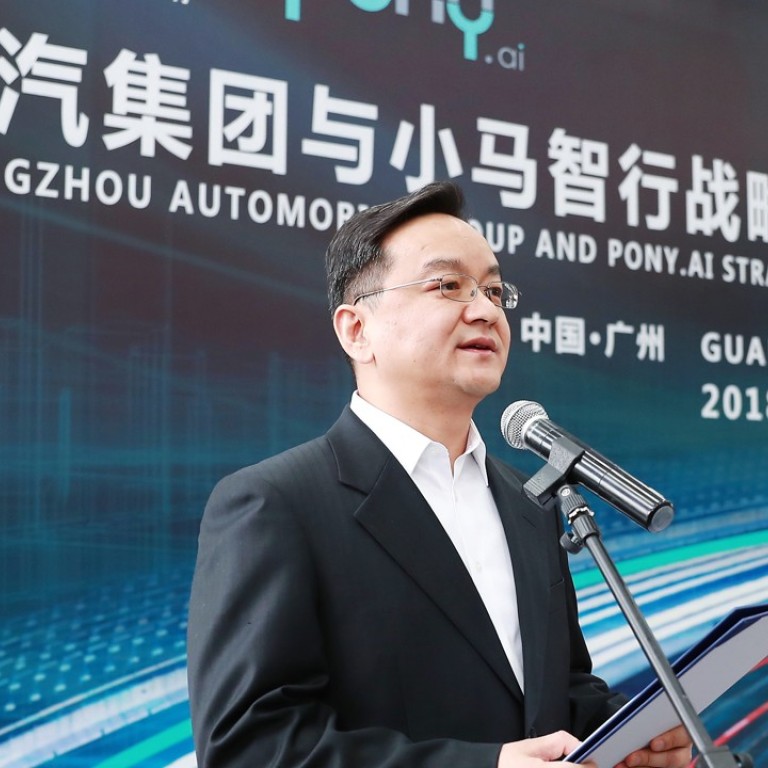
China lagging US in autonomous driving but gap is narrowing, says start-up Pony.ai
It may be the world’s largest car market, but China is still behind the US when it comes to the goal of putting driverless vehicles on the road, according to the chief executive of a Chinese autonomous driving start-up that has just raised US$214 million.
“The gap between the US and China [on autonomous driving] remains, including technology innovation, data collection and talent cultivation,” James Peng, chief executive of Pony.ai, said in an interview on Friday. “However, the gap is narrowing every day and China is playing catch-up.”
Waymo, Alphabet’s driverless car division, and General Motors' Cruise are far ahead of their local and international rivals in terms of miles travelled without human intervention, according to annual data compiled by California motor transport officials.
Pony.ai’s “robotaxis” are currently being tested by invited members of the public, though a driver is still behind the wheel in case of emergencies. Peng said the self-driving fleet is being “demonstrated” within a 30 square kilometre area in Guangzhou’s Nansha district before it can be expanded to a larger area.
“The fleet is working well in the area and the service could be opened up to the general public in the coming two years,” he added. Peng believes the next major challenge for autonomous cars will be moving from demonstration areas to small and medium scale deployments.
Pony.ai, which last week announced the biggest series A funding by a self-driving start-up in China, said the US$214 million raised will be used to speed up commercialisation of the technology as well as for fleet expansion, team growth, and support of existing and new partnerships. Rival Chinese start-up Roadstar.ai raised US$128 million in its Series A funding round in May.
“Autonomous driving cannot work without capital but it is very different from other popular industries [such as food delivery and the sharing economy], which can gain market share by offering subsidies,” said Peng. “Autonomous driving has not moved to the stage of competing for market share yet. We are competing for talent and technology now.”
He said autonomous driving is able to attract the best talent because it is an amalgamation of the latest technologies, including 5G, manufacturing and new energy, and it is seen as the future of transport. “Top talent always like to solve the most difficult problems,” said Peng, adding that there was a lot of competition because companies like Baidu, Alibaba Group Holding, Tencent Holdings, JD.com and Didi Chuxing were also “hungry for top talent".
Baidu, where Peng worked before founding Pony.ai, has started mass production of self-driving buses in a partnership with King Long Automotive, while mass production of small, self-driving passenger cars is expected to begin by 2020. The company, the country’s largest internet search engine operator, has enlisted 90 global and Chinese companies – from carmakers to ride-sharing companies – as partners for its Apollo autonomous car software project.
Pony.ai’s competition not only comes from start-ups and technology giants but also traditional carmakers like GM and Daimler, which are investing billions of dollars to master the future technology of mobility. In Pony.ai’s case, it has teamed up with carmaker Guangzhou Automobile to develop new models suited for autonomous driving. “Traditional carmakers have a deeper understanding of vehicles and we know more about AI technologies, so we can cooperate with each other,” Peng said.
Additional reporting by Sarah Dai

